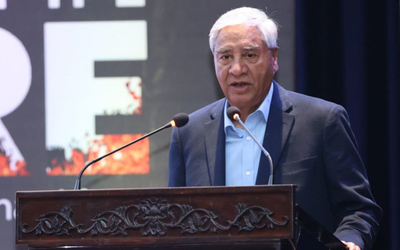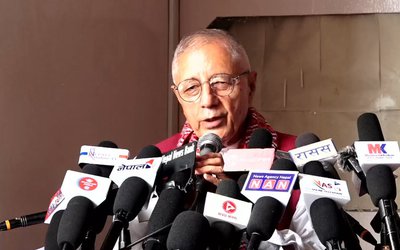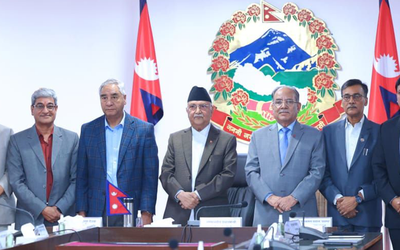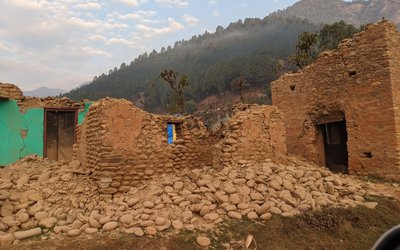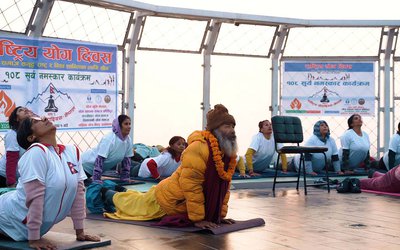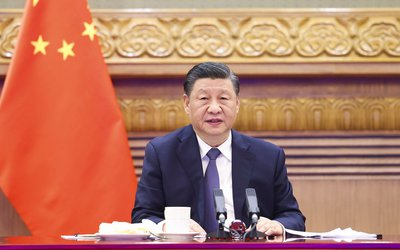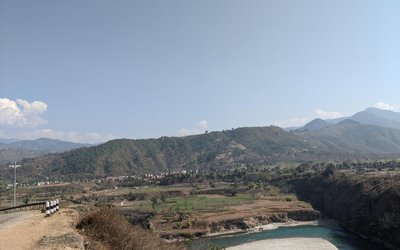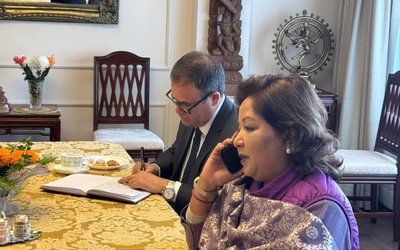
As all the previous six constitutions of Nepal, the current seventh constitution of Nepal has faced a number of troubles in just three years’ time. From the day of the promulgation, since when over 60 people have been killed and hundreds wounded, the constitution is yet to find a respite.

From violent groups to peaceful political parties, there are wide sections of population still opposing the constitution as an incomplete document. Promulgated in a hush and rush of the three political parties, under a fast track provision, the constitution has many lacunas to fill.
The parliament recently used a fast track to pass 16 bills on a day, which is next to impossible in a representative democracy.
As the government has announced the constitution day as a national day urging all the concerned to celebrate the victory of people, a large section of the people living in the southern parts of Nepal, where some people protesting the promulgation of the constitution were killed, are still celebrating the day as a black day.
Sano Paila has joined efforts with the Center for Social Inclusion and Federalism and the Yuwa Samsakti Sangh Nepal to organize a national discussion and brainstorming on the People’s Perception of the Constitution of Nepal in Birgunj.
“This program is neither supportive of nor opposed to any political party or ideology. Rather, it is organized for the representation of the aspirations and sentiments of the Madhesh. Individuals and institutions that embrace all kinds of ideologies and principles have been included as participants in all of the programs. The organizers are confident that the event will help take a concrete step through a mixing pot of different opinions.”
The program will be inaugurated by the family members of the martyrs who sacrificed their lives during the Madhesh Movement. On the evening of September 19, candles will be lit at the Birgunj clock tower to honor the memory of the martyrs.
“Luminaries from across the country, senior political analysts, and reputed journalists, youth leadership that has closely understood and participated in the Madhesh Movement, social and civil society leaders, and political leaders will be participating in the various program sessions,” said a release.
On a call by Rashtriya Janta Dal, fourth largest party in the parliament, and supported by many ethnic groups, there will be clear divisions of those who believe in the new constitution and those against it.
Although Nepal has already promulgated seven constitutions, including Constitution of Nepal 2015, all the previous constitutions died without establishing themselves as a document of faith.
With the voices of opposition brewing, one cannot predict the life of the constitution promulgated under a fast track process. “People in Madhesh sacrificed their lives and gave blood opposing this. Until the government takes the initiatives to rewrite it, people will not accept it,” said Rajendra Mahato, leader of RJP. “The constitution denies the right of Madheshis, Tharus and Janjatis. This is not an inclusive constitution.”
However, Prime Minister K.P. Sharma Oli and main opposition leader and former prime minister Sher Bahadur Deuba have said that this is one of the best constitutions promulgated by the representatives of the people.
“This is the best constitution of the world written by representatives of the people through the Constituent Assembly. The day of promulgation of constitution is an historic day for Nepali people,” said Prime Minister Oli. “Every citizen of the country needs to be proud of the day.”
In his message, Nepali Congress leader Sher Bahadur Deuba said that there is space for amendment and accommodation of all the dissenting voices in the constitution.
“There is no need to go for street protests. We can amend the new constitution through parliament,” said former Prime Minister Deuba. “Our party has already made it clear that there is the need amendment as demanded by various groups.”
With so many ambiguities and confusions, the implementation of new constitution is challenging. On the issue of power sharing, the tug of war between center and provinces has already surfaced.
Although out of seven, six provinces are under the control of ruling parties, six chief ministers ganged up in Pokhara demanding power and authority given by the constitution. This is taken as a first threat to central government led by Prime Minister Oli.
At a time when the chief ministers loyal to prime minister can rebel, one can easily guess new conflicts if chief ministers and prime minister come from different political parties.
Along with provinces and center, there is also a growing conflict between provinces and local levels. Local level leaders feel provinces as a threat to their financial and political autonomy and are demanding their constitutional power from the center.
Federation of District Coordination Committee and Municipal Association of Nepal (MuAN) recently demanded proper acts and resources as per the constitution.
“We need our rights guaranteed by the constitution. All the local level offices should come under us,” said Ashok Kumar Byanju Shrestha, chairperson of MuAN. “We don’t want any directions from center and provinces regarding our autonomy.”
Similar voices are coming from FDCC. “The government needs to pass a bill giving its constitutional role as a body of coordination between province, local levels and center.
The first three years of implementation have shown mixed experiences. Although Nepal held three elections of local level, province level and central level and formed governments in all the three tires, there are growing conflicts among the constitutional bodies.
Recent rejection of proposed Chief Justice Dipak Raj Joshi by Parliamentary Hearing Committee is an indication that there will be more conflicts in the future between the executive, judiciary and legislature.
With the promulgation of new civil code act, there is insecurity in the media about shrinking the space of freedom of press. Several clauses under the new civil code act bars freedom of press.
Although it is reported that Nepal has already completed the phase of political transition, there is a growing insecurity among the people. The recent case of rape and murder of a 13-year old girl in Kanchanpur exposes Nepal’s growing sense of insecurity.
The new constitution has already witnessed a numbers of troubles and it is likely to see much more turmoil. However, it remains to be seen whether the new constitution will establish itself as a stable constitution or die prematurely.
Given the nature of Nepal and character of political leaders, who do not mind to suspend all procedures to pass 17 bills in an hour, they are likely to take the ownership of the constitution for a long time to come.
Photo courtesy: Deshsanchr

Keshab Poudel
Poudel is the editor of New Spotlight Magazine.
- The Question Arises: Do Former Prime Ministers Prachanda, Nepal, And Dr. Bhattarai Support The Terror actions Of Hamas?
- Dec 11, 2024
- MD KUL MAN GHISING: December 25 Deadline For Upper Tamakoshi
- Dec 09, 2024
- ADB's REFP Reintegration of Returnee Migrants
- Dec 02, 2024
- The Relationship Between Kosovo And Nepal Is Robust: ELBERT KRASNIQUI
- Nov 29, 2024
- ADB’s REFP: Women (Em)Power
- Nov 28, 2024



